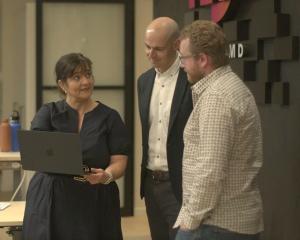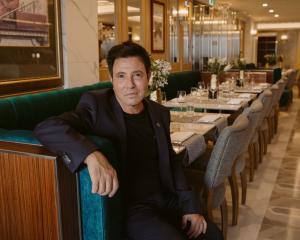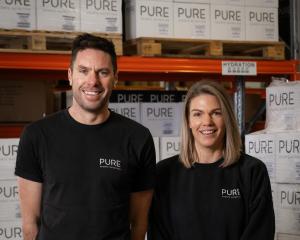Senior entrepreneurs are globally the fastest-growing segment of entrepreneurship, as business reporter Sally Rae discovers.
Geoff Pearman knows first-hand what it is like to have to rethink a career in your late 50s.
"I've been there, I've experienced it, I know how damned hard it is,'' the Sawyers Bay resident said.
Having lost his job twice, he looked at using the skills he had acquired over the years to make a difference.
Now he has a consulting business, helping organisations in Australia and New Zealand adapt to the ageing of their workforces.
The dominant perception was that entrepreneurship was about young people, tech, and scaleable.
Globally, senior entrepreneurs were now the fastest-growing segment of entrepreneurship and it was something that needed to be embraced, he said.
Recent research showed more than one-third of young-firms in Australia were led by people aged 55 and older, while the highest rate of business start-up activity in the United States was among people aged 55 to 64.
The OECD has estimated that globally more than 50% of such businesses were social enterprises.
Mr Pearman was working in a senior position in Christchurch, in his mid-50s, when he found himself in a phenomenon of being "successful but bored''.
While thinking of his next step, he was head-hunted for a job in Australia.
It appeared to be a dream job but turned into an "absolute nightmare'' so he walked away from it.
The seed for his later-in-life business venture was inadvertently planted when he attended a conference in Vancouver and met encore.org founder Marc Freeman.
The organisation's mission was to build a movement to tap the skills and experience of those in midlife and beyond to improve communities and the world.
Mr Freedman talked about the number of people from "50-ish onwards'' who were thinking quite differently about the work contribution they wanted to make.
They were changing careers, taking their skills into new environments, retraining and setting up new businesses.
Recognising that people were living longer, meant they were not going to "bomb out'' at 65.
His comments inspired Mr Pearman who, having got a job with the Government, found himself made redundant after 20 months at 58, following a change in Government.
He decided that applying for jobs was not for him.
He was experiencing what one writer called "the 100 no's''.
He started to think about how he could take his skills, knowledge and experience to make a contribution in the next stage of his life.
While working in Wellington, he had an opportunity to look at research around the world that was happening in the space of ageing.
A big issue was that organisations did not know what to do so he started developing some methodology and strategic approaches to that area.
Four years ago, Mr Pearman went into his consulting business Partners in Change full-time.
After living in Brisbane for a couple of years, he shifted to Otago in November, 2014.
"It hasn't been easy and I wish that when I started out five years ago that there had been a group for senior entrepreneurs, a place where I could meet people who had an idea and were setting up new businesses in their 50s and 60s,'' he said.
In Dunedin, he has been talking to the likes of Des Adamson, from Enterprise Dunedin, Peter Harris, from Otago Polytechnic, and the Otago Chamber of Commerce, along with similar organisations in Auckland.
There was now strong support to set up Senior Entrepreneurs NZ, with the aim being to champion and support senior entrepreneurs through co-ordinating networking opportunities and providing access to training workshops, mentoring and resources.
Mr Pearman and Auckland co-founder of Senior Entrepreneurs NZ, Muriel Roake wanted to meet others who were senior entrepreneurs or contemplating that option.
Enterprise Dunedin was sponsoring the first "meet-up'' in Dunedin this month.
Mr Adamson said the benefits to the regional and national economy and to communities, from the emerging worldwide phenomenon, could be significant.
Mr Pearman was loving the work he was doing, which was about empowering people to take back control of their lives and challenge some old myths.
"I don't talk about retirement. I'm always talking about the next stage of your life,'' he said.
There was a huge group of people who wanted to continue to contribute to the economy which, economically, was not only going to mean contributing through their earnings but also other flow-on benefits including reduced health costs.
But it was "not even on the radar'' in terms of economic development, he said.
Research did not support the myth that older workers kept young ones out of work.
There was some research that showed if you kept older workers in the workforce, it actually created jobs, he said.
The business was "taking off'' as he joked that he was trying to do "a bit less work'' and "bit more pottery''.












